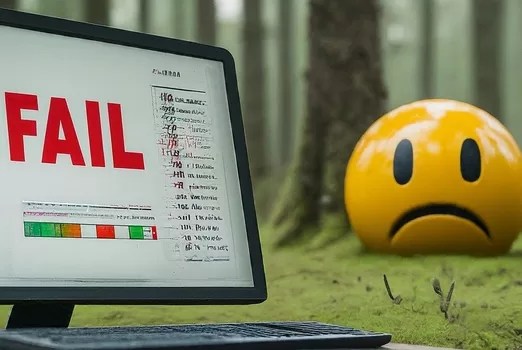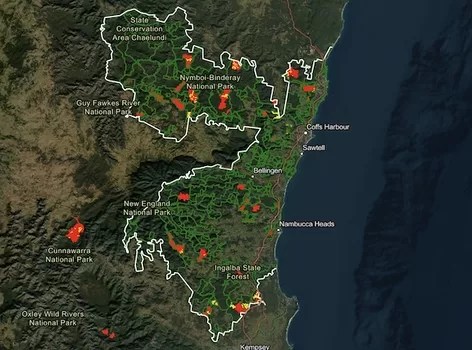Excess LNG export capacity at Woodside’s Burrup Hub, coupled with insufficient renewable energy development, poses significant threats to Western Australia’s (WA) domestic gas supply and local energy consumers, according to a new report by energy analysts Sustainable Energy Now and Climate Safe Solutions.
The report’s publication coincides with a Parliamentary Inquiry into WA’s domestic gas policy. The inquiry has postponed the release of its Final Report, initially scheduled to be tabled this morning, to provide the Economics and Industry Committee more time to review submissions, including the findings from Sustainable Energy Now.
The Sustainable Energy Now report, titled “From Provider to Parasite: Excess LNG export capacity and state energy policies as emerging threats to WA’s domestic gas market, environment, and economy” indicates that Woodside’s Burrup Hub is evolving from a modest provider to a substantial net taker of gas from the WA domestic market.
The report’s modeling shows that Woodside’s expansive North West Shelf facility will increasingly depend on significant volumes of gas from WA’s onshore domestic reserves to fulfill its export demands. This shift is occurring as offshore gas field yields diminish and fail to meet export needs.
Piers Verstegen of Climate Safe Solutions, the report’s author, stated: “Contrary to Woodside’s PR campaign, Burrup Hub is already becoming a parasite on WA’s domestic gas reserves and will increasingly compete directly with domestic gas users in the state.
Without urgent action from the Cook Government, the WA gas market will follow the same pattern as in the East, with higher prices for consumers as LNG exporters make huge profits by sucking gas out of the domestic market for sale in spot markets overseas.
The Cook Government must take urgent action to protect WA’s domestic gas reserves from LNG exporters. This must start with denying Woodside approval to extend the North West Shelf facility to export WA’s domestic gas.
At the same time, we need a strategy to dramatically scale up the production of low-cost renewable energy to replace the use of gas in WA.”
Dr. Rob Phillips, Acting Chair of Sustainable Energy Now, highlighted the potential for renewable energy:
“There are many examples where renewable electricity can replace gas use in household, commercial, and industrial settings at a lower cost. However, the lack of support for renewable energy development is currently holding these opportunities back.”
“The growing demand for gas from LNG exporters and lack of renewable energy is not just hurting consumers in WA. It is also driving up carbon pollution, making the state less competitive and less attractive for investors wanting to access cheap, clean energy.”
“Most policies to date have been focused on the supply of gas to the domestic market, but the reality is we are facing very large excess demand – especially from gas exporters, who are already exporting 90% of the gas produced in WA,” said Dr. Rob Phillips.
“Exporting LNG is the lowest value use for our state’s gas resources. Per unit of gas used, the LNG export industry delivers fewer jobs and less revenue than any other industry. This means that every tonne of gas that is exported from our domestic reserves comes at a cost to WA consumers and a cost to the WA economy.”
The report suggests several critical actions to protect WA businesses and consumers from higher energy bills and address the increasing pollution from gas use.
These actions include denying Woodside’s request for unlimited approvals to export WA domestic gas through the North West Shelf extension, placing a permanent ban on any further export of WA’s domestic gas reserves, scaling up renewable energy generation in WA to replace gas demand, and developing a plan to phase out the use of gas in the WA domestic market in the medium-term.

Related stories
John Butler should thank Big Oil & Gas for plastic
Reactions to Dutton’s large nuclear reactor policy
Victoria’s Offshore Gas Drilling Approval Condemned
NT Govt Signs Deal for Unapproved Fracking Project
Emissions wildly underestimated from fracking in NT
Fracking incidents on cattle station in Beetaloo Basin NT
UN Secretary-General Calls for Fossil Fuel Advertising Ban
Meet the Frackers: Origin Energy ASX:ORG company information
Santos accused of misleading advertising
Global Methane Pledge: UN launch methane detection satellite
Net Zero+ International Programme for Action on Climate
Climate of the Nation Report: Australia Climate Research
Carbon Credits Used to Plug Orphan Oil & Gas Wells
Best way to reduce climate change is stop gas industry methane leaks
What is Greenwashing and How to spot it
How the Queensland Government fracked the state
Meet the Frackers: Gas explorers in Australia



